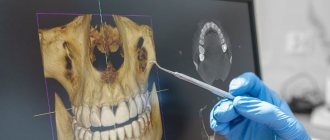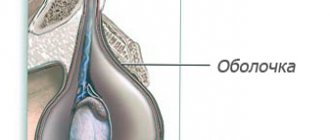A sour taste in the mouth is usually a sign of the development of a disease. This unpleasant taste can appear in the morning, after eating, and also at night, during sleep. Sometimes a sour aftertaste is observed in pregnant women. Most often, such a sensation indicates impaired functioning of the digestive system or the presence of oral diseases. You should not ignore the feeling, especially when this unpleasant feeling appears regularly. You should immediately contact a specialist who, after conducting the necessary diagnostics, will identify the cause of the discomfort and prescribe appropriate treatment.
Quite often, an unpleasant odor from the mouth appears along with a sour taste.
It is customary to distinguish between different types of sour taste:
- sour with a sweet tint;
- sour-salty;
- sour with bitterness;
- sour taste with a metallic tint.
A sour taste with a hint of sweetness can occur with diabetes. This taste in the mouth may be due to elevated blood sugar levels. Quite often this happens due to excessive consumption of sweets. Also, such an aftertaste may indicate improper functioning of the gastrointestinal tract or the presence of dental diseases.
A mixture of sour and salty, as a rule, manifests itself in diseases of the ENT organs and inflammation of the salivary glands.
A sour, bitter taste may be a consequence of poor nutrition. Bitterness can also be observed in heavy smokers. Almost always, such a taste is a symptom of diseases of the digestive system. Sourish bitterness in the mouth may indicate the development of gastritis, ulcers or pancreatitis.
A sour metallic taste, as a rule, signals the development of dental pathology.
Thus, factors such as:
- diseases of the digestive system;
- pathologies of teeth and gums;
- diabetes;
- pathologies of ENT organs;
- pregnancy;
- bad habits;
- poor nutrition.
A sour taste in the mouth: simple discomfort or an alarming symptom
A sour taste in the mouth worsens the psychological state and appetite, and affects the taste perception of dishes. More often it appears after eating and is associated with the consumption of certain foods and irritating drinks. If you constantly feel an unpleasant taste and you are sure that it is not caused by food, this may indicate the presence of a pathology. In this case, you need to consult a doctor as soon as possible. Only a specialist will accurately determine the cause and tell you how to get rid of the unpleasant symptom.
Physiological reasons
It is not always sour in the mouth if there are disorders in the human body. A common cause of discomfort is insufficient oral care. Bacteria in dental plaque produce acids that destroy tooth enamel and cause the feeling of sour saliva. The unpleasant sign will disappear after proper teeth cleaning.
The symptom may also occur after consuming certain types of foods: milk or sweets. Pathogenic flora in the oral cavity is activated due to the intake of food rich in carbohydrates. In this case, it is possible to eliminate discomfort if you adjust your diet or thoroughly clean your teeth of product residues.
Those people who are accustomed to overeating often suffer from the problem. Because of this, their sphincter, through which food enters the stomach, is impaired. The contents of the stomach along with hydrochloric acid are thrown back.
Acidified saliva also appears after excessive consumption of fried and fatty foods. They disrupt the functioning of the gastrointestinal tract and provoke inflammation in the digestive system. The main signs of inflammation of the gastrointestinal tract are bitterness and acidity in the mouth. In this case, the person needs to immediately contact the clinic to avoid complications of the underlying disease.
A sour taste in the mouth is often observed in people who wear metal structures in the mouth: piercings, iron crowns. The sensation occurs as a result of metal oxidation under the influence of saliva. In this case, a dentist will help a person cope with discomfort.
Another reason for a sour taste in the mouth in women is pregnancy. After conceiving a child, girls' hormonal levels change. This leads not only to changes in appearance, but also to the appearance of a foreign taste in the mouth. The symptom is associated with activation of the salivary glands, exacerbation of chronic ENT diseases or pathologies of the digestive tract.
Acid saliva is a common symptom that appears during pregnancy.
Increased acidity in the mouth, which occurs due to physiological reasons, is rarely accompanied by other unpleasant symptoms. The taste disappears immediately after eliminating the provoking factors and does not require drug treatment.
Why does a sour taste appear?
The digestive system has a complex structure. The presence of any aggressive factors and internal changes in various organs negatively affects its functioning, as evidenced by the appearance of a sour taste. The main causative factors for the appearance of an unpleasant symptom:
- Gastroesophageal reflux disease (GERD). When food enters the stomach, it does not return to the esophagus thanks to a special valve. It does not work properly in patients with GERD. Because of this, food enters the esophagus, which explains why a sour or bitter taste appears.
- Insufficient oral hygiene and dental diseases: caries, gingivitis, periodontitis, stomatitis and other infections caused by fungi.
- Taking certain medications. There are drugs that, in addition to their main action, affect taste buds in the brain or tongue. This includes antibiotics, drugs prescribed as part of chemotherapy for the treatment of neurological, cardiovascular diseases, and certain psychological conditions (depression, anxiety, insomnia).
- Bad habits. An unpleasant aftertaste may be caused by smoking and chewing tobacco for a long time.
- Dry mouth. Insufficient saliva production is accompanied by incorrect perception of taste. The disorder worsens with anxiety or stress.
- Lack of zinc in the body. It is observed when there is insufficient intake of this element into the body, its poor absorption, for example, when taking certain medications.
- Pregnancy and other conditions of the female body. Hormonal changes in expectant mothers cause a sour taste. This also happens due to the pressure of the uterus on the stomach. At the same time, heartburn appears. An undesirable symptom is also observed in women during menopause, which is explained by changes in hormone levels. By the way, hormonal disorders in men are also sometimes accompanied by the appearance of a sour taste.
- Radiation therapy, which affects the head and neck area. This can damage saliva tissue, causing an unpleasant taste.
- A number of diseases (gastric ulcer, disorders of the liver and its ducts, gastroduodenitis, pancreatitis, diaphragmatic hernia, chronic anemia, helminthic infestation).
There are many more reasons that provoke an unpleasant symptom. These are neurological disorders, operations or head injuries, poisoning with heavy metals and highly toxic substances.
Causes of GERD
Reflux (reflux of stomach contents into the esophagus) can occur for the following reasons:
decreased tone of the lower esophageal sphincter.
Sphincter weakness may result from:- consumption of caffeinated drinks, chocolate;
- smoking;
- alcohol abuse;
- hormonal changes during pregnancy;
taking certain medications;
- flatulence (which, in turn, can be a consequence of poor nutrition, gastrointestinal diseases, digestive disorders - dyspepsia);
pregnancy;
- hiatal hernia.
For the development of gastroesophageal reflux disease, not only the reflux itself is important, but also some other factors that contribute to the aggravation of the situation, for example:
- depressed state of the esophageal mucosa, in which it is unable to resist damage;
- impaired ability of the esophagus to cleanse itself. Normally, the esophagus should quickly be cleared of the stomach contents that have entered it - due to gravity and peristalsis, and the acidity of the environment should be eliminated by sodium bicarbonate, which is part of the saliva.
Factors that provoke reflux are:
- stress;
- eating too much food (overeating);
- eating foods that cause increased gas formation and other digestive disorders;
- physical activity after meals.
Symptoms accompanying a sour taste in the mouth
Sometimes the sour taste occurs only in the morning, in some cases it is felt constantly. It happens that it is combined with bad breath, which causes discomfort. What do the different “shades” of bad bite mean? They can talk about such violations:
- sour-bitter - occurs when there is a violation of fat metabolism and liver damage, eating large amounts of unhealthy food before bedtime;
- sour with a metallic taste - may indicate anemia, the development of dental diseases, the initial stage of diabetes mellitus;
- sweet and sour – a sign of oral diseases, intoxication of the body, latent diabetes mellitus;
- sour and salty - indicates problems with the salivary glands, otolaryngological diseases, central nervous system disorders, and may also mean that strong coffee or tea is consumed excessively.
In addition to a sour taste in the mouth, other symptoms may also appear: nausea, vomiting, abdominal pain, diarrhea, difficulty swallowing, burning throat.
Diagnostics
If an atypical taste is occasionally or constantly felt in the mouth, consultation with a gastroenterologist is required. The symptom is caused by various reasons, therefore, before laboratory and instrumental examination, you should carefully collect anamnesis and accompanying complaints. The greatest diagnostic value is:
- Blood tests
. A standard blood chemistry test reveals the accumulation of ammonia and ketone bodies, which often cause an unpleasant taste in the mouth. Clinical analysis can detect a decrease in hemoglobin, changes in the size and shape of red blood cells, which is characteristic of anemia. If necessary, toxicological analysis is carried out. - Hormonal profile
. If patients complain of a sweetish sensation in the mouth, fasting sugar levels are measured. The results of an oral glucose tolerance test are indicative. To clarify the form of diabetes, the concentration of insulin and C-peptide is taken into account. If glucose levels are normal, it is recommended to determine the level of thyroid hormones. - ENT examination
. During the study, the condition of the mouth, throat, and nasal passages is examined. Frequent findings are signs of chronic inflammation, purulent or whitish deposits on the mucous membrane. Bloody crusts are sometimes found in the nose. If carious teeth or bleeding gums are detected, a person is referred to a dentist. - Endoscopy
. The causes of unusual taste sensations, which are combined with abdominal pain and painful heartburn, are diagnosed using FGDS. During endoscopy, inflammatory and destructive processes in the gastric mucosa, insufficiency of the cardiac sphincter with the flow of acidic contents into the esophagus are visualized. - X-ray imaging
. To exclude ENT causes of a persistent unpleasant taste in the mouth, an x-ray of the paranasal sinuses is performed. Excretory urography is indicated for patients with swelling, lower back pain and other signs of kidney damage. To study the condition of the intestines, a barium passage x-ray is prescribed. - Additional methods
. In women, levels of sex hormones must be examined; in young patients, the level of human chorionic gonadotropin is additionally assessed to confirm or exclude pregnancy. If lung cancer is suspected, especially in men with a long history of smoking, bronchoscopy with collection of material for cytomorphological analysis is required.
If you have an unpleasant taste in your mouth, it is important to maintain oral hygiene
How is diagnostics carried out?
Only an accurate diagnosis is the key to successful treatment. For this purpose, you may have to visit several specialists: a therapist, a dentist, a gastroenterologist, an endocrinologist, and a gynecologist. The child must first be shown to a pediatrician.
Each of the listed reasons has its own method of diagnosis and elimination. In addition to collecting anamnesis and visual examination of the mouth, neck and head, doctors may prescribe the following studies:
- blood and urine tests;
- Ultrasound;
- FGDS;
- X-ray with HF;
- CT or MRI.
Various tests are also carried out to evaluate taste sensations.
Pathological causes
Sometimes you can tell from a symptom which disease it indicates. A common cause of the problem is developing diseases of the oral cavity: stomatitis, gingivitis, periodontal disease. The sour taste appears due to the mixing of blood residues with saliva. The same symptom can be observed for some time after the removal of a diseased tooth. Caries and pulpitis also lead to changes in the taste characteristics of saliva. In case of violations, the pathogenic flora in the oral cavity actively multiplies. The waste products of bacteria acidify saliva and contribute to the rapid destruction of the enamel of the problematic tooth.
Other pathological reasons why a sour taste appears in the mouth include:
Damage to ENT organs: sinusitis, sinusitis. Additionally, the disorders are accompanied by headaches and breathing difficulties. An unpleasant taste in the mouth is caused by bacteria that enter the throat from the upper respiratory tract. The symptom can be eliminated only after treating the underlying disease.
Gastritis with high acidity. A sour taste in the mouth occurs during exacerbation of the disease. Additionally, it is accompanied by pain in the upper abdomen, belching, and flatulence. The taste of acid becomes especially pronounced after sleep or eating. Exacerbations of the disease are eliminated after consultation with a gastroenterologist.
Bitter taste in mouth
Emission of toxic fumes when working in hazardous industries: arsenic, lead, mercury. Harmful substances tend to accumulate in the tissues of the human body. In this case, an unpleasant (metallic) taste will appear in a person until he changes his place of work. The unpleasant sensation is especially aggravated after drinking coffee or strong tea, or smoking. Most often men face this problem.
Gastroduodenitis. The disease can manifest itself against the background of gastritis with high acidity. In addition to the problem under consideration, the pathology is accompanied by sleep disturbances, pale skin, weakness and frequent headaches.
Peptic ulcer of the stomach and duodenum. If there is a disturbance on the surface of the mucous membranes of the digestive tract, lesions are formed in appearance that resemble bleeding wounds. A sour taste in the mouth appears in patients after sleep and immediately after eating. Additional signs by which the disorder can be recognized are hungry stomach pains that subside after eating.
Biliary dyskinesia. The pathology is associated with a violation of the outflow of bile in the body. In this case, patients feel a sour-bitter bite in the morning, which goes away during the day. The problem is characterized by the appearance of dull pain in the right hypochondrium, radiating to the shoulder and shoulder blades. Another pathology that can cause similar symptoms is cholelithiasis. It is associated with the formation of stones in the gallbladder and its ducts. When stones move through the ducts, a person feels unbearable pain.
Cholecystitis. Saliva acquires a bitter-sour taste due to errors in nutrition. This occurs due to the fact that bile and gastric juice are thrown into the esophagus. Additional signs of cholecystitis are dull pain in the right hypochondrium with increased body temperature.
Alahazia of the esophagus is a problem associated with difficulty swallowing food. It is also characterized by difficult movement of pieces of food along the esophagus and the throwing of gastric contents out, as with gastroduodenitis. After eating, pain may be felt in the throat and behind the sternum. The acidity of saliva during halachia is associated with the production of large amounts of lactic acid, which is necessary for the breakdown of food.
Hernia in the diaphragm area. The problem becomes the reason that food is constantly thrown into the esophagus. The patient notes a bitter or sour taste in the mouth and constant heartburn.
Pancreatitis in a chronic form. Accompanied by stool disturbances, abdominal pain, nausea and vomiting. Damage to the pancreas provokes a feeling of sourness and dryness in the mouth.
Rare pathological causes that can also cause a persistent taste in the mouth:
- neurological problems;
- parasite infection;
- intestinal spasms;
- anemia;
- avitaminosis.
Treatment and preventive measures
Since a sour taste in the mouth is only a symptom, after identifying the causative disease, the doctor will prescribe appropriate treatment and tell you what to do to improve its effectiveness. It is important to pay due attention to the quality of oral hygiene, if necessary, carry out its sanitation, undergo professional teeth cleaning, and improve gum health.
How to remove the sour taste caused by gastrointestinal diseases? In addition to drug therapy prescribed by your doctor, you should follow these recommendations:
- do not overeat at night;
- Take warm food in small portions 5-6 times a day;
- drink enough clean water;
- limit consumption or completely avoid smoked, salty, fatty foods and alcohol, which have a bad effect on the digestion process and liver function;
- consume less red meat, strong coffee and tea, carbonated drinks and other foods with sour or bitter taste;
- introduce plant foods, cereals, eggs, dairy products, fish into the diet;
- to refuse from bad habits.
It is important to analyze the drugs that are used. A diet is also recommended for pregnant women. Expectant mothers should not take a horizontal position or engage in active physical exercise after eating. Hiking in the fresh air is shown.
general characteristics
From time to time, an unpleasant taste occurs in healthy people.
It can be caused by the accumulation of food particles due to insufficient oral hygiene, or the consumption of foods with a bright, rich taste. In most cases, the symptom is caused by pathological causes. A bitter taste is felt in the mouth mainly in the morning, immediately after waking up. Unpleasant sensations bother a person for several hours and do not disappear after rinsing the mouth with water. Bitterness or a feeling of sourness are accompanied by heartburn and a sore throat. In this case, the oral mucosa dries out, the saliva is viscous, and is released in smaller quantities. Sometimes patients complain of a strong chemical or metallic taste that lasts throughout the day. If symptoms appear with a certain frequency or constantly, you need to visit a specialist.
Drug treatment
Sour belching occurs along with heartburn and other signs of indigestion. Symptoms appear with gastritis with increased production of hydrochloric acid. They can be treated with several groups of medications:
- Proton pump inhibitors, which inhibit the production of gastric juice - Omez, Rabeloc.
- Tablets for heartburn - Reni, Gistak, Kvyamatel.
- Antacids that neutralize the negative effects of hydrochloric acid on the mucous membranes of the digestive tract - Maalox, Gastracid.
- Preparations with enzymes that improve the absorption and breakdown of food - Festal, Mezim, Pancreatin.
- Prokinetics that accelerate intestinal and gastric motility and eliminate stagnant processes in the digestive system and attacks of nausea - Motilak, Domperidone.
- Antibiotics (if Helicobacter pylori is detected in tests) - Amoxicillin, Azithromycin.
- Probiotics for normalizing intestinal microflora - Linex, Bactrim, Acipol.
Pain and spasms resulting from gastritis and ulcers are eliminated with the help of No-shpa or Drotaverine. The use of NSAIDs for this purpose is prohibited, as they can aggravate the symptoms of the problem.
If the mouth is sour due to liver disease, then patients are prescribed choleretic drugs - Ursosan, Ursofalk. They prevent stagnation of bile in the body and promote its unhindered excretion into the duodenum.
An important component of treating sour taste in the mouth is diet.
For a while, it is necessary to include foods of plant origin in the diet. Canned food, fast food, carbonated drinks, spices, spicy foods, alcohol and chocolate are removed from the menu. Preference is given to fermented milk products, green tea, and stewed vegetables.
Metal structures in the mouth
After installing braces and crowns, dentists warn patients about the possible appearance of a metallic taste - this is a normal phenomenon that should subside within a week after the procedure. If this period has passed, and discomfort still makes itself felt, the reasons may be as follows:
- allergy to metal. It is very rare, but taking an allergy test will not be superfluous. If the suspicion is confirmed, the only solution will be a complete replacement of all installed structures;
- galvanism (interaction between metals), which occurs in the case of installation of orthopedic structures made of different materials that interact with each other. If all the crowns and posts are made of the same material and the amalgam fillings are replaced, the problem will disappear.
If you have metal dentures or implants, an iron taste may become noticeable after consuming acidic foods and drinks. Accordingly, the presence of piercings on the tongue or lips can also cause a similar effect.
Why there is an iron taste in the mouth: reasons not related to disease
If you notice an iron taste in your mouth, you should not immediately panic: there is a possibility that the unpleasant sensation is not associated with diseases.
It may appear due to:
- drinking mineral water with salts (often this product is enriched to compensate for iron deficiency in the body);
- drinking low quality drinking water (for example, supplied to the home through old rusty pipes);
- tongue piercing (the sensation appears as a result of the metal reacting with certain foods);
- using cast iron and aluminum cookware when preparing and eating food.
Excess salt on the menu
A similar symptom may appear when we eat excessively salty foods. For a long time now, scientists, doctors, as well as adherents of a healthy lifestyle have noted that salt in large quantities is dangerous for the human body. And its main danger is the load on the cardiovascular system, urinary system, and kidneys. It also increases blood pressure. Therefore, to some extent, modification of diets can lead to the fact that taste perception is restored and excess salt begins to be felt.
Metallic taste in the mouth of people of different sexes
A number of reasons that cause the sensation of metal are divided by gender.
For men who work in mining or in industries that use heavy metals, an iron taste may appear during each shift and disappear after the end of the shift. Long-term wearing of massive metal objects (bracelets, watches) also leads to a similar result, since during prolonged contact with the skin the concentration of ions entering the blood through the pores becomes too high.
Women may experience a metallic taste due to:
- pregnancy. Many expectant mothers note that a metallic taste periodically appears during pregnancy. Why does this happen? Firstly, the matter may be a lack of microelements and vitamins, and secondly, changes in hormonal levels and malfunctions in the functioning of receptors that recognize taste can be to blame;
- the use of weight loss drugs and various biological additives, which often leads to poisoning due to incorrect dosages and the desire to quickly get the most pronounced result possible;
- insufficient amount of fluid consumed (women resort to this remedy to lose weight and get rid of swelling). A metallic taste is one of the signs of dehydration.
It is best to start combating this not very pleasant feeling by visiting a doctor who will prescribe the necessary tests and examinations. Otherwise, you can look for reasons on your own and continue to experience discomfort regularly for a very long time.
Symptoms
Let us consider in more detail the characteristics of the symptom of the disorder depending on the cause that provoked it. A sweet and sour taste in the mouth appears after consuming large amounts of sugar, lactose-containing foods and coffee. Other causes of the symptom include:
- sudden cessation of smoking;
- liver pathologies;
- dental diseases (caries, periodontitis, gingivitis);
- poisoning by toxic substances at work;
- uncontrolled use of certain types of drugs;
- diabetes.
A bitter-sour taste in the mouth is most often associated with dietary errors. It can also appear due to bad habits such as smoking or drinking alcohol.
List of other factors causing discomfort:
- taking antibiotics, allergy medications, NSAIDs, medications for seizures;
- problematic outflow of bile from the body;
- gallbladder diseases;
- liver dysfunction;
- duodenal ulcer;
- gastritis;
- initial stages of diabetes;
- hormonal imbalance (during pregnancy, puberty or menopause);
- chronic anemia.
When taking medications, acid in the mouth will not appear immediately. This requires a long course of drug treatment.
A sour-salty taste occurs with the development of sialodenitis. The problem is associated with inflammation of the salivary glands. It develops independently or as a complication of a prolonged runny nose and other otolaryngological pathologies.
Other causes of symptoms include:
- abuse of carbonated drinks or coffee;
- dehydration of the body;
- uncontrolled consumption of alcoholic beverages;
- damage to the sinuses;
- poor nutrition.
Metal taste as a symptom of oral diseases
Patients with gum problems often complain of a strong metallic taste that occurs repeatedly throughout the day. The most popular diseases that provoke such unpleasant sensations include periodontitis and gingivitis, which are accompanied by bleeding gums, and many people describe the taste of blood as metallic. It usually appears during brushing your teeth and after eating. Some patients feel as if there is a foreign body in the mouth, which causes serious inconvenience.
Loose teeth and tartar build-up can also cause a metallic taste. There is no point in trying to independently identify the causes - it is better to immediately contact a dentist.










